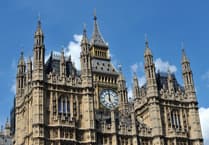Analysis of new figures reveals that Milton and Tamarside was the most expensive area of Torridge to buy a house in last year.
Zoopla said the data highlights how localised the housing market across England and Wales is, with prices often reflecting the housing stock available in an area.
Data from the Office for National Statistics reveals that of the 16 council wards in Torridge, Milton and Tamarside saw the highest median house price in 2021, of £370,000.
This was followed by Monkleigh and Putford (£350,000) and Shebbear and Langtree (£335,000).
By contrast, the cheapest parts of Torridge to purchase property were Bideford East, which had a median house price of £195,250, Great Torrington (£205,000) and Bideford West (£207,475).
The median – the middle number in a series – is used to ensure the figures are not skewed by extreme highs or lows.
Meanwhile, the number of homes sold in Torridge rose from 1,126 in 2020 to 1,377 last year.
Of sales last year, 11% (151) were in Bideford North – making it the busiest area for buyers.
At the other end of the scale, Winkleigh saw just 37 properties sold in 2021, earning it the title of quietest area of Torridge's property market.
The Centre for Economics and Business Research said that following a period of significant growth during the pandemic, it expects house prices to experience downward pressure over the next year, as a result of sharp rises in mortgage rates.
Karl Thompson, an economist at the think tank, said the strongest price contractions are expected outside of London and the South East, causing greater regional price disparities.
The number of residential property sales in England increased by 21% to 821,407 between the end of 2020 and the end of last year.
Grainne Gilmore, head of research at Zoopla, said property values vary widely in large part because of the differing housing stock between areas – some neighbourhoods will have a higher number of five-bedroom detached homes, while others will be home to more flats and smaller properties.
But she said the difference between more and less expensive areas may start to narrow.
She added: "The demand for larger detached homes during the pandemic has pushed average values for houses higher over the last year, while price growth for flats has lagged.
"But there are signs that demand for flats in city centres is gaining momentum, so we could see faster rising prices in this part of the market."




